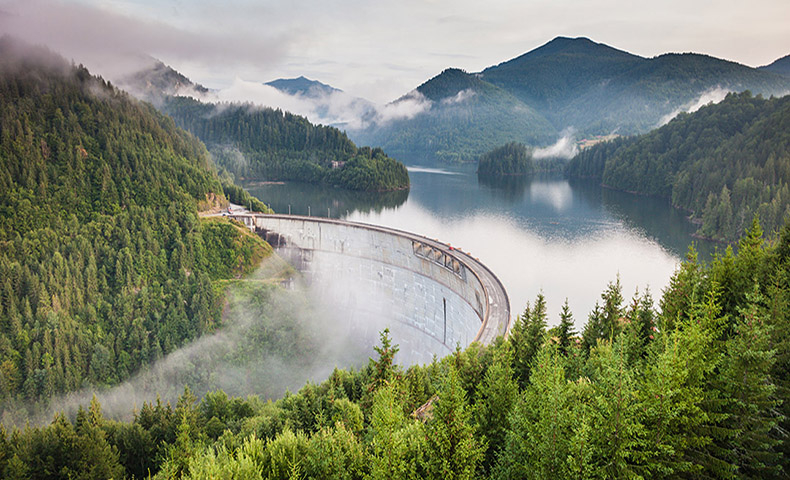
Because solar panels spend their entire decades-long lifespan outside, some people are concerned that they might not be all that waterproof and will be prone to things like water damage, electric shocks, and mold. However, solar panels are manufactured with things like rain and snow in mind, and therefore, are created with these things in mind. Solar panels have to be waterproof, otherwise, they’d only live a couple years instead of their average lifespan of 25-30 years. Still not convinced? Keep on reading to learn more!
Your solar panels are waterproof.
As mentioned above, the manufacturers of solar panels do realize that they will be exposed to all kinds of wet elements, and therefore, solar panels are made to handle water and bad weather. Even if your panels do suffer some ill consequences from water, they should still be covered by a warranty, so it shouldn’t be a huge deal. This is why it’s so important to make sure you get a warranty that you have thoroughly looked over to ensure it covers any damages like this so you won’t be left to take care of it yourself.
The wiring in solar panels is the most likely to suffer from damage.
When it comes to parts of your solar system you should be concerned about when it comes to water damage, the wiring is, of course, at the top of the list. After all, if water starts interacting with your wiring, you could be at risk of electric shock or your home catching on fire. The flip side of this, of course, is that your solar manufacturer and installers will take extra care to ensure that these parts of the system won’t be susceptible to water damage.
How solar panels are waterproof.
You’re probably wondering how exactly your solar panel system is waterproof for peace of mind. Solar panels are placed behind a thin glass sheet on the front and a durable polymer material on the back. These layers are all then all place inside of a metal frame that is sealed shut with glue to ensure there is no possibility for any holes or any way for anything to get through. The glue is a durable sealant glue, so you won’t have to worry about it coming undone from water, either.
Solar panels can also handle extreme weather conditions.
Water from rain isn’t the only weather condition that solar panels are able to handle.
If your panels get covered in snow, their efficiency will decrease, but as soon as you clean the snow off, they’ll be back to normal. The cold will have no effect on your panels, and they are built to handle an extreme amount of weight, so you won’t have to worry about that, either.
If you’re dealing with a hailstorm, the glass that surrounds your solar system should be able to withstand anything that hits it. There are some exceptions, of course, but even in these instances of extreme, heavy hail, usually, only one panel out of hundreds is likely to get any damage. Even if it does, your warranty, again, should be able to cover it.
And even if you’re dealing with a scary natural disaster like a hurricane, your panels are still built to withstand even these horrifying incidents.
Want to learn more about solar panels and other ways they can benefit you? Check out the HahaSmart blog!
HahaSmart Blog - More Solar Tips and Guide
HahaSmart News - Stay Informed
Your Solar Incentives - See Credits and Incentives in Your Area
Check Your Home's Solar Price - See How Much You Save
Register Now - Unlock The Lowest Solar Prices in Your Area


Input your address to see if it is solar friendly and how much you can save with solar.
Great. Your address is perfect for solar. Solar incentive is still available. Select monthly utility cost and calculate the size of solar system you will need now.
| kw System size | years Payback period | Lifetime savings |
No money down, 100% finance is available.
|
|
Sign up now! Learn more about solar technologies! |
Comments